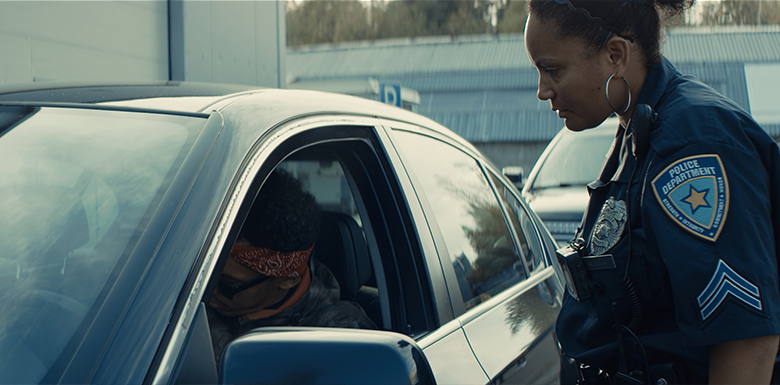
Topic: Criminal Defense
The Fourth Amendment is famous for protecting citizens from unreasonable searches and seizures.
Everyday Protections
There are many protections at work in your everyday life. If law enforcement has no reason to search or seize you and your property, they will need to ask your consent. You have the right to refuse consent to the search.
Reasonable Suspicion
Reasonable suspicion is established if an individual with similar training to the officer in the same circumstances could reasonably suspect a person has been, is, or is about to be, engaged in criminal activity.
Reasonable suspicion may be used to justify temporary detention, Terry Stops, and limited vehicle searches.
Detention
Detention must be of limited duration and interference. Detention is the seizure of an individual and temporary suspension of their freedom. Officers may detain someone to ask them questions and prepare for a Terry Stop.
At the end of the stop, the officer must decide either to make an arrest or release the individual.
Stop and Frisk (Terry Stop)
A Terry Stop is a heightened detention that permits the officer to conduct an over the clothes search for weapons based on the reasonable suspicion that the stopped individual is carrying a weapon. Stop and frisk has been controversial due to the risk of racial profiling and law enforcement overreach.
Traffic Stops
Traffic stops are a kind of detention but there are distinct differences between traffic stops and other detentions. If an officer witnesses a traffic violation, they may temporarily stop the vehicle to write a ticket.
During this time, an officer may seize items in plain view and order the driver and passenger out of the car. With reasonable suspicion that the driver has a weapon, the officer may search the passenger seat and compartment of the car. The officer may also conduct a dog sniff search for drugs on the outside of the car, so long as this does not prolong the stop.
Probable Cause
Probable cause is the next step up from reasonable suspicion. It represents a reasonable belief that a crime has been committed and that the suspect in question committed the crime.
Probable cause may be used to justify an arrest, a search incident to arrest, vehicle searches, and inventory searches.
Arrests
An officer may conduct an arrest if they have probable cause that a crime has been committed and that the suspect committed the crime.
Search Incident to Arrest
After an arrest, the officer may search the arrestee and the surrounding area for evidence that may be destroyed.
Vehicle Searches
If a vehicle is mobile, an officer may use probable cause to search the vehicle.
Inventory Search
After an arrest, the arrestee and legitimately seized items may be searched in order to inventory their contents.
Warrants
A warrant is issued by the judge based on probable cause. It must specifically list the person and property who is to be searched.
Warrants justify property searches, arrests, and dog sniff searches.
Court Protections
Illegally obtained evidence is not permissible in court. An attorney may move to suppress evidence or use improperly admitted evidence as the basis for an appeal.
Exclusionary Rule
Under the exclusionary rule, illegally obtained evidence may not be used in court. Evidence may be redeemed by officers using Good Faith, Inevitable Discovery, Purged Taint, or Independent Source tactics.
Fruit of the Poison Tree
If evidence that resulted from an unreasonable search and seizure later led to the discovery of more evidence, that later evidence is not admissible in court.
Exceptions
In order to account for special circumstances, there are exceptions to the Fourth Amendment’s protections.
Consent
If you knowingly and intelligently give consent for a search to be conducted, any evidence found is valid in a court of law.
Exigent Circumstances
In the course of their duties, law enforcement officers may find themselves in an urgent situation that prevents them from obtaining a warrant. The preservation of human life or evidence can override the need for a warrant.
Hot Pursuit
If the target of a hot pursuit enters a building, law enforcement may follow without a warrant. Any evidence found during this time, whether related to the target’s case or not, is admissible evidence.
Open Fields
Underdeveloped or non-developed land that is outside curtilage (more than 50 feet from the home) officers may enter and search the property.
Plain View
If an item is in plain view, plain smell, or plain hearing, the officer is in a position to notice the item legally, and it is readily apparent that the item is seize-able, the seizure is valid.
Suspicion-less Searches
Officers may conduct suspicion-less searches in the following cases:
- Airports
- Schools
- Railroad workers
- DUI checkpoints
- Probation and Parole search clauses
- Certain administrative searches to protect public health and safety
If You Think Your Fourth Amendment Rights Were Violated Contact an Attorney Right Away
Protass Law, PLLC can help if you feel your Fourth Amendment rights have been violated. Call us at (212) 455-0335 or use our online contact form.